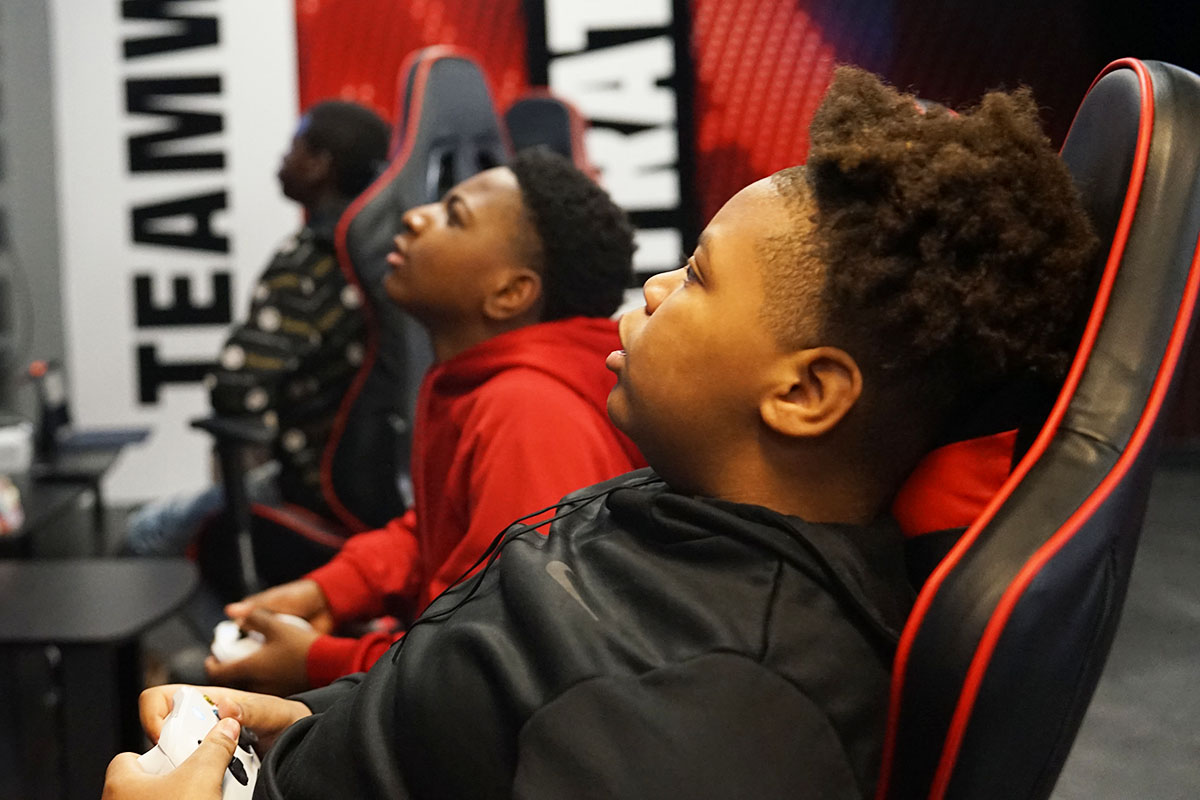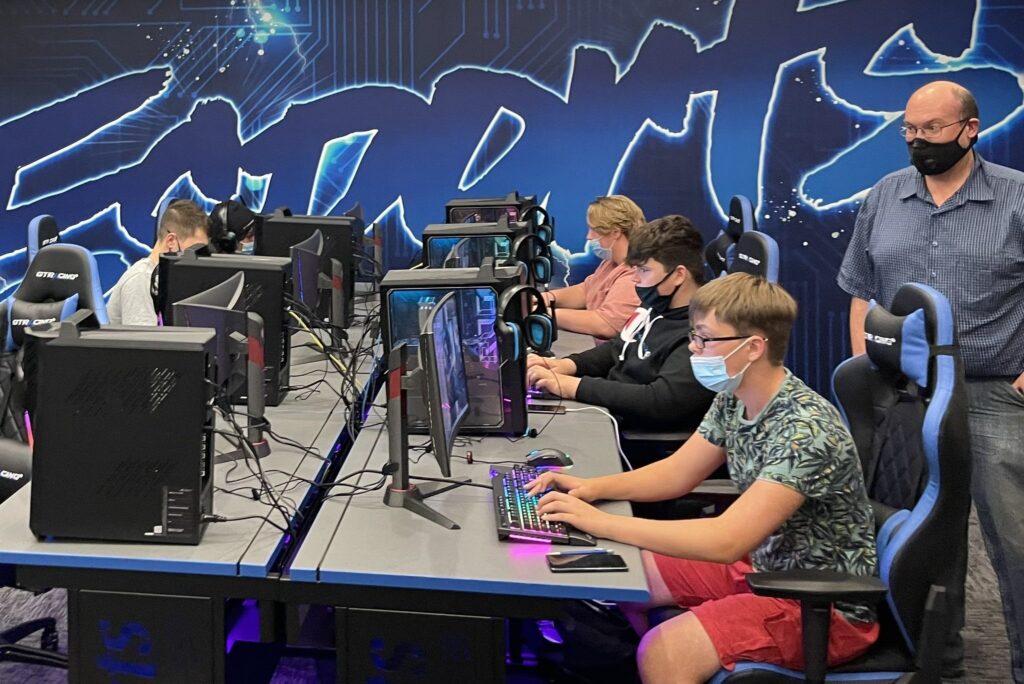In 2018, the National Federation of State High School Associations declared Esports an official sport.
In a world that is constantly becoming more and more digital, could Esports really be the key to helping students navigate a digital future and prepare them for professional careers?
What are Esports?
Esports are organized, competitive, video gaming. Members have to try out and qualify to be considered part of the team, just like any other sport. Teams practice, come up with different strategies, and even review previous tournament footage.
Some of the games that teams gather to compete in include League of Legends, Overwatch, Rocket League, and Fortnite.
Recent surveys have shown that over 90% of teenagers say that they play video games. It is no wonder that the world of Esports have steadily risen in the education community as educators look to incorporate student interest into learning.

What is the appeal and how does it apply to education?
Many colleges and high schools across the country have begun creating Esports teams to compete with other schools. Since Esports became an official sport in 2018, over 8,600 high schools have created Esports teams.
Esports provide a sense of community for many young people, like all extracurriculars do. Bringing together groups of people from all walks of life that might not have otherwise hung out together, yet are bonded by their interest in video games can create strong bonds against peers. Especially since the games require collaboration.
Esports also offers an outlet for kids who might not be interested in more traditional sports. Just because kids do not wish to participate in more physical activities does not mean that they aren’t looking for some team or club to belong to.
For many kids, Esports encourages them to find a place where they belong.
What are the benefits?
Like any extracurricular activity, Esports have opportunities and drawbacks. But what are the benefits?
One of the biggest benefits for Esports in schools is teamwork. Esports often have six people on a team, all focused on the same objective.
Through practices, students learn to develop strategic, on-the-spot thinking, which is a valuable skill that translates far beyond the game. The video games being played also help to better hand eye coordination.
Another important benefit of Esports is that they can serve as a great introduction to many different careers. Esports can spark an interest in students from an early age, allowing them to see all the real-world applications to the skill they are developing.
Esports is a billion dollar industry. The gaming industry is rapidly growing. Jobs in coding, marketing, and graphic design, as well as social media managers and event coordinator are just some of the careers that students will be introduced to while participating in Esports.
These engaging factors could actually lead to better performance and attendance in schools, as studies have shown with students involved in after school activities. It helps that many colleges offer scholarships for Esports.
What are the downsides?
That being said, there are still obstacles to the world of Esports.
The biggest obstacle that Esports has to face is undoubtedly money. It goes without saying that Esports requires a lot of technological equipment: monitors, keyboards, headphones, gaming chairs, and other “peripheral” equipment. All of which are needed to have a decent setup and a properly functioning Esports team.
Additionally, strong wifi connection is also a must, as well as being able to navigate through internet blocks that certain districts might have put in place. These blocks make it hard for students to compete against other schools.
Furthermore, Esports, like any activity, can lead its participants to experience burnout. It is important to create boundaries for students just like in any club or sport. Taking breaks to walk around and stretch after sitting for hours at a time might be a way to combat this.
As with any new phenomenon, the meaning, value, reach, and impact of Esports is not yet fully understood. There may be even more benefits and drawbacks that we haven’t heard of, because it is still a relatively new area, especially in regards to the world of education.
Where do we go from here?
The world is always changing, and educational opportunities are constantly evolving as students’ interests change. Is Esports another opportunity for students to engage and learn through something they are passionate about?
Like any sport or extracurricular, Esports creates many opportunities for students, but also presents some drawbacks. It’s up to educators to figure out how they want to utilize this new tool. One thing is for sure, the world of Esports is only growing, evolving with the world around it while creating a new world for students to explore.
